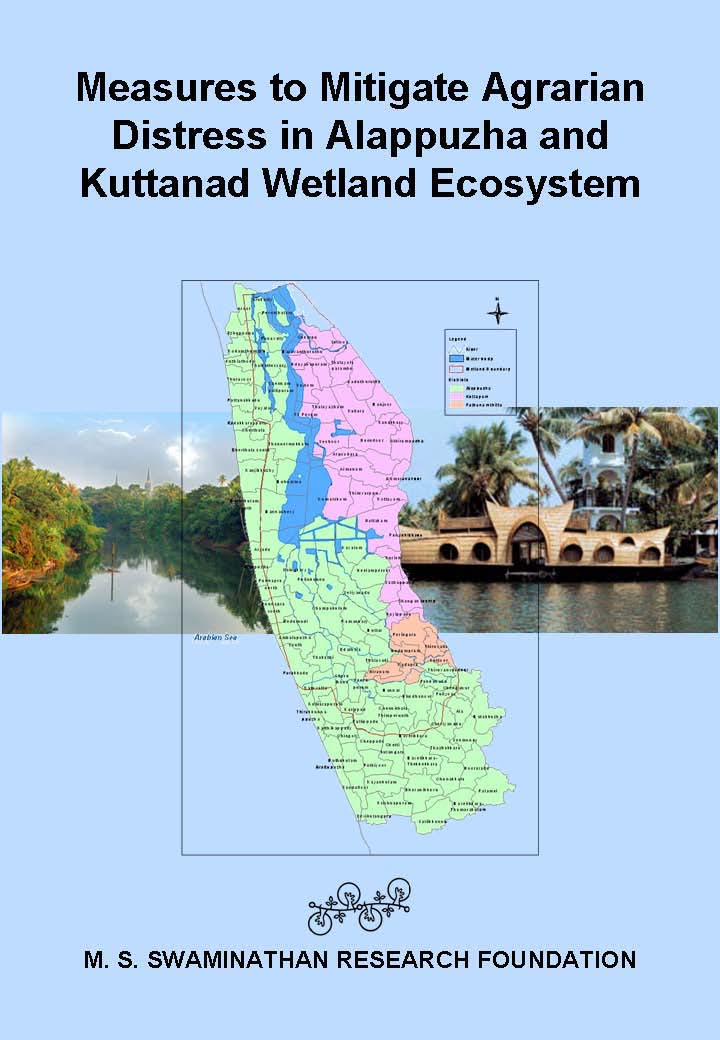Governance
NREGS proves to be nemesis of textile sector : MGNREGS news updates compiled by FES (May 1 - 15, 2011)
Posted on 04 Jul, 2011 12:31 PM Main highlights in this update:
Main highlights in this update:
- NREGS proves to be nemesis of textile sector: One of the most successful employment generation schemes from the government has put the textile sector in disarray.
- BJP leader rallies for NREGA whistleblower: Former BJP state president Suresh Pujari has opposed the arrest of a NREGA whistleblower in Jharsuguda district. Pujari said Gunanidhi Barik, former sarpanch of Lakhanpur block, has been falsely implicated by police and demanded a probe into it.
Sharing the wealth of minerals – A report by Centre for Science and Environment on profit sharing with local communities
Posted on 03 Jul, 2011 08:57 AM The report submits the idea that proposal will go a long way in reducing poverty and deprivation in the mining affected areas. It states that the mining industry’s opposition to the proposal has no basis - statistics prove that sharing profits will not dent the industry’s profitability.
The report submits the idea that proposal will go a long way in reducing poverty and deprivation in the mining affected areas. It states that the mining industry’s opposition to the proposal has no basis - statistics prove that sharing profits will not dent the industry’s profitability.
The central government has come out with a draft Mines and Minerals (Development and Regulation) Bill, 2010 (MMDR Bill) to replace the 1957 Act. The draft bill which has been vetted by a GoM, includes this provision of sharing benefits. The CSE analysis comes out in strong support of this proposal, and clearly establishes how timely and necessary this provision is.
Mining companies and industry in general have been opposing the government’s recent proposal. Their contention is that this provision, if passed by Parliament, would drastically dent their profitability.
Measures to mitigate agrarian distress in Alappuzha and Kuttanad wetland ecosystem – A study report by MSSRF
Posted on 01 Jul, 2011 06:51 AM In spite of its natural wealth, the Alappuzha district has a high proportion of population living in poverty.
In spite of its natural wealth, the Alappuzha district has a high proportion of population living in poverty.
Recognizing that the process of preparation of a mitigation plan report is as important as the product, the MSSRF team held wide ranging consultations with all concerned with the economy, ecological security and livelihood security of Kuttanad wetlands. Information on the consultations held and visits made are given in the report. It contains a malady-remedy analysis of the problems and potential solutions.
The greatest challenge in dealing with multidimensional problems in our country is our inability to generate the necessary synergy and convergence among the numerous government, non-government, civil society and other agencies involved in the implementation of the programmes such as those outlined in this report. This is why the team has suggested both high-level policy guidance and monitoring committee as well as a task implementation mechanism.
India Water Portal is looking for Content Publishers - Apply by July 15, 2011
Posted on 30 Jun, 2011 05:31 PMDepartment for International Development India is looking for Economic Adviser at Delhi – Apply by July 15, 2011
Posted on 30 Jun, 2011 12:12 PM![]() DFID India manages UK’s development programme worth £280 million per year, delivered in partnership with government, international organisations, private sector and civil society. Programmes with governments of Bihar, Madhya Pradesh and Orissa, and the central government work on health, nutrition, education, governance, rural livelihoods, and urban sectors.
DFID India manages UK’s development programme worth £280 million per year, delivered in partnership with government, international organisations, private sector and civil society. Programmes with governments of Bihar, Madhya Pradesh and Orissa, and the central government work on health, nutrition, education, governance, rural livelihoods, and urban sectors.
DFID India is also developing a programme that aims to enhance collaboration with India on key global and policy issues such as climate change, trade and food security and on poverty reduction in low income countries.
Himalayan solutions for cooperation and security in river basins : A report by Strategic Foresight Group
Posted on 29 Jun, 2011 07:03 PM This report by the Strategic Foresight Group is a follow-up to its earlier report The Himalayan Challenge: Water Security in Emerging Asia, 2010 . The growing water stress, plans for dams on shared rivers, and uncertainties about the precise impact of climate change have brought water to the forefront of the political agenda of countries in the Himalayan River Basins.
This report by the Strategic Foresight Group is a follow-up to its earlier report The Himalayan Challenge: Water Security in Emerging Asia, 2010 . The growing water stress, plans for dams on shared rivers, and uncertainties about the precise impact of climate change have brought water to the forefront of the political agenda of countries in the Himalayan River Basins.
The report recommends policy options for national governments as well as strategies which can be implemented by local authorities and community groups in a politically viable manner. Some of the ideas may on the surface appear to be addressing micro-level issues. However, such micro-level issues do have an important bearing on security at the macro-level in a large continent such as Asia. This is the experience of many other regions as well, as illustrated in several of the chapters in this report.
The objective of this report is to explore how river basins in the Himalayan region, and particularly shared water resources, can foster cooperation and security between Bangladesh, China, India and Nepal. The conventional view is that depleting water resources, growing problem of pollution, uncertain risks posed by climate change together may lead to competition for resources, migration, social instability, internal conflicts and diplomatic tensions between countries. This view is realistic and was discussed in detail in a previous report of Strategic Foresight Group. It has contributed to spreading the awareness of security risks associated with water crisis in the Himalayan region.
Ford Foundation calls for applications from documentary film makers seeking grant
Posted on 29 Jun, 2011 06:10 PMFord Foundation is on the frontlines of social change around the world, working with visionary leaders and organizations to change social structures and institutions—so that everyone has the opportunity to achieve their full potential and have a voice in decisions that affect them.
JustFilms will deepen the Ford Foundation’s support for hallmark documentary films. Building on 75 years of support for the visual arts, JustFilms will follow three distinct avenues for finding and supporting film projects that explore important social justice issues around the world.
Low carbon strategies for inclusive growth - An interim report of the Planning Commission's expert group
Posted on 28 Jun, 2011 11:44 PM Some policy measures implied by various options have also been indicated. The main sectors examined in the report are power, transport, industry, buildings and forestry.
Some policy measures implied by various options have also been indicated. The main sectors examined in the report are power, transport, industry, buildings and forestry.
Increased concentrations of Green House Gases (GHGs) and the overall warming of the atmosphere has resulted in changing rainfall patterns, disruption in hydrological cycles, melting of ice caps and glaciers, rise in sea levels, and increase in frequency and intensity of extreme events such as heavy precipitation and cyclonic activities.
These have in turn had serious impact on sustainability of water resources, agriculture, forests and ecosystems, affecting the well being of billions of people on earth. Widespread melting of glaciers and snow cover will reduce melt water from major mountain ranges (e.g. Hindu Kush, Himalaya, Andes) where more than one billion people currently live.
Establishment and management of community sanitary complexes in rural areas - A handbook by Water and Sanitation Program
Posted on 28 Jun, 2011 10:45 PM It is intended primarily for programme implementers to help them understand the critical need for Community Sanitary Complexes and inform them of the guiding principles to be adopted while planning for these.
It is intended primarily for programme implementers to help them understand the critical need for Community Sanitary Complexes and inform them of the guiding principles to be adopted while planning for these.
India remains one of the countries wherein concerted efforts are still required to eliminate the practice of open defecation. The lack of priority given to safe confinement and disposal of human excreta poses significant health risks manifest in the sanitation challenge facing the nation today.
The provision of sanitation facilities through public toilet complexes is the most suitable option for those who cannot afford individual toilets for monetary reasons or due to lack of space, and opt for open defecation. Such complexes are a useful and valuable option at public places, markets, taxi stands, etc., where a large congregation of people takes place. The Community Sanitary Complex (CSC) fosters the cognitive development of healthy sanitation practices in the community.
The lake and the well, part of a water master plan - Article by S. Vishwanath about Jakkur Lake in Bangalore
Posted on 28 Jun, 2011 05:41 PMAuthor: S. Vishwanath
Video courtesy: Zenrainman
When a city adds nearly 3 million people in a span of a decade ensuring water supply to its citizens seems a huge challenge. One critical thing to realize is that the mind-set of ‘providing’ water has to change and become one of ensuring that citizens can access water of requisite quality.





